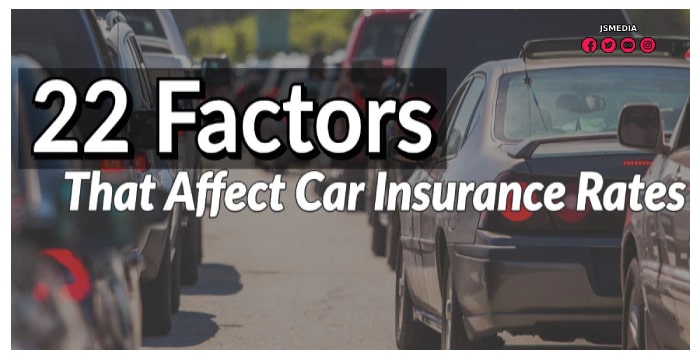JSMedia – In determining your car insurance and auto insurance rates, the factors that affect the premium are different for every driver. First, consider your driving record. If you have multiple tickets, a DUI, or reckless driving charges on your record, your rate will likely increase. But you can avoid these rate increases by taking defensive driving classes. In addition, insurers take a look at your yearly mileage and how far you commute. Low-mileage drivers are considered safer and less likely to make a claim.
Your auto insurance expenditures are also affected by the type of coverage you purchase and the deductible you choose. The NAIC doesn’t account for these variables because they aren’t directly linked to your driving record. You should also be aware of state laws that affect the cost of auto insurance. For example, the number of urban residents and highway miles driven per capita are linked to the cost of auto insurance in that state. States with higher premiums tend to be more urban and have higher wage levels and greater traffic density.
Rates are based on several factors. For example, many car insurance companies only look at claims from the last three years, while others look back five or even ten years. This makes it important to compare the rates of different companies if you have a history of claims. You should also consider your age and your driving record, as these factors will have an impact on your car insurance and auto insurance rates. A good way to lower your rates is to increase your deductible and/or decrease your coverage levels. If you have a good driving record and do not have many tickets or accidents, you can reduce your risk.
Car Insurance and Auto Insurance Rates

The study uses statistical modeling to determine risk factors and determine average rates. The rates are based on a number of different factors. The most important factor is the level of coverage you select. If you drive more than one car, your insurance costs will be higher. If you opt to reduce the amount of coverage, you are putting yourself at more risk, which will increase your premiums. If you reduce your coverage, you are increasing your risk and will be paying for it more than you need to.
Insurability and premiums depend on a variety of factors. The cost of your car is a big factor. If your driving record is a problem, you will be more likely to make claims, which will cost your insurer money. Your credit rating can affect your auto insurance premiums. If you have a good credit rating, this can be a factor in determining your car insurance and auto insurance rates.
Insurers consider your driving history when deciding how much coverage you need. If you drive a lot, you may want to consider pay-per-mile car insurance. If you are a low-mileage driver, you may want to consider a pay-per-mile policy. If you have a poor credit score, you may want to reconsider comprehensive and collision insurance. If you do not drive much, your rate will increase dramatically.
The average cost of car insurance differs for men and women, and the age of a driver can also affect their rate. For instance, a woman will pay more for auto insurance than a man. In some states, car insurance rates are lower for women than for men. While these factors are not related to gender, it is important to be aware of your age and gender. Your driving history will determine the type of policy you need.
Some types of car insurance have deductibles. You must decide how much you can afford to pay before your insurer will pay. You can choose to have a $500 or $1000 deductible. Insurers also take into account your driving history. The more years you’ve been driving, the lower your insurance rate will be. You can also get a discount by taking a defensive driving course. If you have a good credit score, you’ll find a cheaper insurance.

